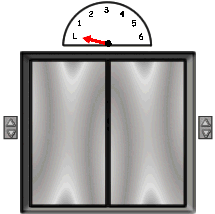





 |
|||||||||||||||
 |
 |
 |
|||||||||||||
| |
|||||||||||||||
| |
|||||||||||||||
 |
|
||||||||||||||
| |
|||||||||||||||
| |
 |
||||||||||||||
| |
|||||||||||||||
|
Week 2 - Lesson 2 Observations, Research Questions, and Hypotheses |
|
Sample Response
One: Observation:
Students have been assigned to three groups based on Math and Reading levels
allowing the three homeroom teachers to departmentalize Math, Reading, Language
Arts/Writing.
Two: Lower level
performing students (as determined by last year's FCAT scores) who are also
repetitive discipline problems for classroom teachers and who seem to be having
trouble adjusting to the multiple transitions that come with departmentalizing,
will be reassigned to their own homeroom (a new unit) and will no longer be
expected to transition (they will be a self-contained class). The hope is that
this will reduce the time lost in class due to teachers having to stop
instruction often to cope with discipline issues.
Three: Writing students
are asked to work with a partner one day a week to edit each other's first
drafts of a writing assignment, with teacher supervision and coaching. The goal
is to increase the students editing and writing skills through this team effort.
Four: Writing students
are expected to listen to classmates while they read their own writing samples.
The goal is to let students share what they have written and to have an
opportunity for the teacher to point out examples of positive aspects of the
students' writing samples. To increase active listening during this activity,
the teacher added a requirement for all students to write notes about each
paper. The teacher asked for positive comments about what they liked about the
paper and suggestions for ways to make the papers better.
Five: Students have a
tendency in one of my classes, which is larger than the others, to talk among
themselves as soon as my focus is directed toward any other group in the room,
which makes helping someone or answering questions about writing assignments
frustrating.
|
| Course Syllabus |
Course Schedule |
John C. Pace Library |
Course Resources |
Student Papers |
Course Home Page |
Updated on May 16, 2007 |
© 2004 by Leasha Barry. All rights reserved. |